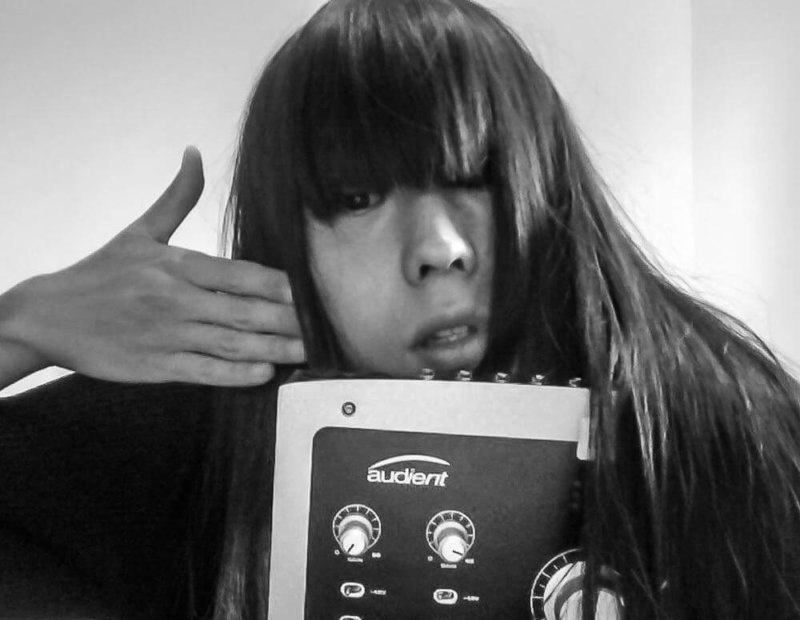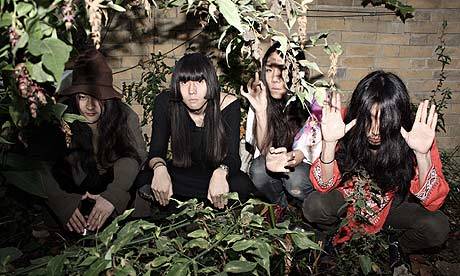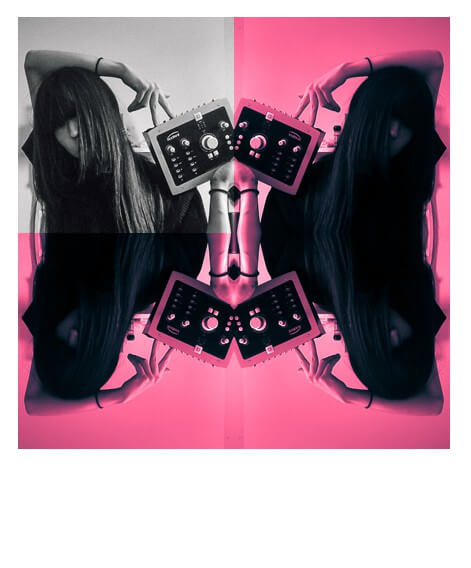Artistic, psychedelic rock foursome, Bo Ningen has recently added an Audient iD22 USB audio interface to their recording setup. Lead singer, Taigen Kawabe’s initial reaction to the new arrival was surprise at “the clarity and honest sounds from the iD22,” later adding, “I would say the mic preamp surprised me the most. It’s super-clear and can capture such a wide range of frequency.”

A wide frequency range is certainly what these musical racketeers need, with Taigen confirming that the band “…always wants to break the boundaries.” Having met in London and formed nine years ago, the foursome have toured with The Fall, Primal Scream and Kasabian, and worked with fashion brands Alexander McQueen and Yoji Yamamoto. Most of their songs are in Japanese and the band itself is notoriously difficult to define. “I think: ‘doesn’t fit into one particular genre or music scene’ is one of the strong points we have as a band,” says Taigen, citing Slider as one of the best tracks for an accurate first impression of Bo Ningen. “If it’s more about the live experience, try Daikaisei Parts 2 & 3 which we normally play at the end of our set,” he adds, cryptically.
So, to his studio setup for recording instruments and vocals: “I normally plug almost everything into my mixer (a Soundcraft MPM) and then plug into the audio interface,” he explains. “I’ve just started to plug straight into the audio interface directly – especially the microphone – after I changed to the iD22.
“I would say the mic preamp surprised me the most. It’s super-clear and can capture such a wide range of frequency.”
He’s not afraid of breaking boundaries in the recording studio, either. “I like to use something you’re not supposed to use for mixing to process the sound and mix it with original sound – cheap guitar pedals, or I’ll record something with the laptop mic, for example.” He’s been using the extra outputs afforded by the iD22 audio interface to connect to his mixer to process the sound. “Before using iD22 I always had a dilemma between the sound you hear from the mixer, and the sound you recorded through the audio interface when I record and process the sounds.
“Capturing the right sounds/vibes/performances is definitely challenging all the time – it can’t be just clean or tidy,” continues Taigen. “People normally perform differently in the recording studio too, so it’s really difficult to find the nice spot in between ‘energy from performing live’ and ‘production magic’ – but this is the most interesting and fascinating point of making a record too.”
With the vocal chain made up of: Mic (SM58 beta) → Boss RE-20 Space Echo Effects Pedal → Boss VB-2 (Original 1980s) → DI or Audio Interface, Taigen has plans to buy a good condenser mic before making the next band recordings. “I would be more than comfortable with a combination of a good mic and iD22 mic pre to record my vocal or some re-amp/production stuff for the recordings on the final release.”
“I would be more than comfortable with a combination of a good mic and iD22 mic pre to record my vocal or some re-amp/production stuff for the recordings on the final release.”
Taigen himself is a cacophony of ideas. He admires composer Steve Reich, and cites UK bass music, Japanese Idol, pro wrestling and surreal porn as his inspiration. For him, playing music is a sort of purification ritual and he’s well aware that his Japanese lyrics confuse the audience. “I like how people can use their imagination to figure out what I’m singing about, or focus more on the sound itself. With say, 1000 people in a venue, isn’t it more interesting that each of them is processing the soundscape differently in their minds?

Bo Ningen has played at some festivals in the south-west of England this summer, after a whirlwind tour in their homeland, Japan. Check out the Bo Ningen website to find out what’s next for them.
After nearly a decade in the UK however, he’s started writing more songs in English. “Singing in English is like learning a whole new instrument, it’s a source of new inspiration and ideas. I come up with totally different rhythms and melodies when I sing in different languages.”
